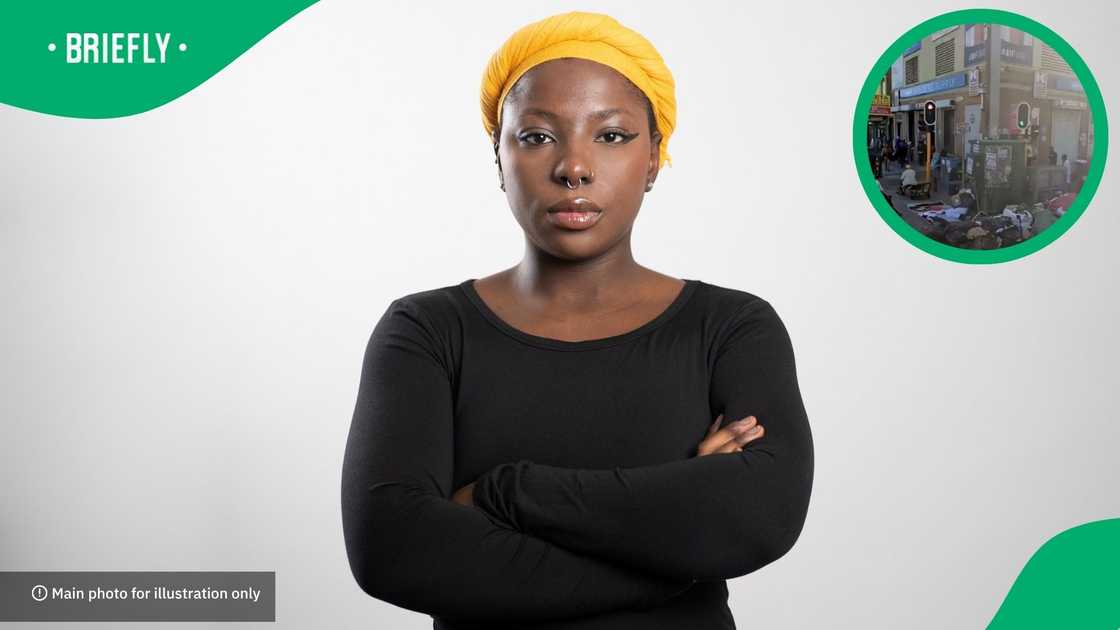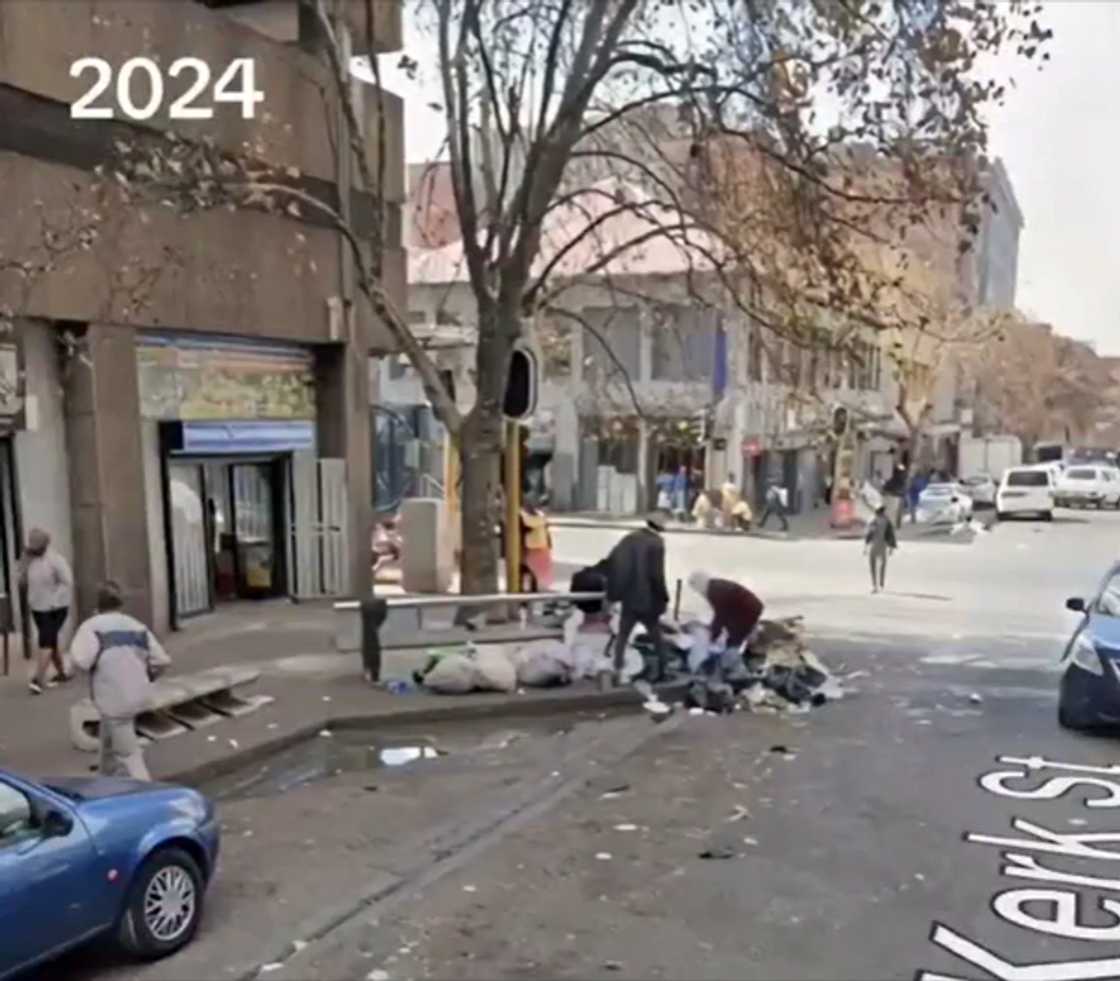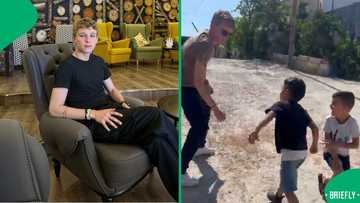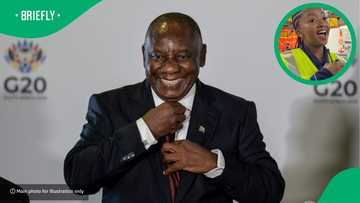“Legacy of Colonialism”: Transformation Video of Johannesburg From 2014 To Present Sparks Debate
- A compelling video showcasing Johannesburg's dramatic transformation from 2014 to the current year provided a serious look at the city's changing urban environment
- The insightful clip, shared on Reddit, showed various parts of the city evolving from well-maintained areas to increasingly worn and crowded spaces
- Social media users responded with concern and focused discussions, lamenting the city's perceived decline and assigning blame for its current state

Source: Getty Images
A thought-provoking video mapping Johannesburg's significant changes over the past decade resonated deeply with online audiences.
The video was shared by ThatsInsane on Reddit, garnered many views and comments, indicating its profound impact on social media users.
The video offered a vivid visual comparison of different parts of Johannesburg, contrasting their appearance in 2014 with their current state in 2024. In 2014, many areas were described as decent and clean, reflecting a sense of order and care. However, by 2024, these same spaces had visibly deteriorated, appearing dirty and overcrowded.
A city's shifting face
Some buildings displayed evident vandalism and burn marks, painting a picture of urban decay. A touching part highlighted a beautifully constructed new bridge in 2017; by 2024, the very same bridge sheltered rough sleepers living underneath it, a stark symbol of the city's changing demographics and challenges. The progression of images provided a rough visual narrative of a once-vibrant municipality wrestling with decline.
PAY ATTENTION: stay informed and follow us on Google News!

Source: Getty Images
Mzansi reacts to the post
The clip prompted significant discussion among social media users, many of whom expressed deep concern and sadness over Johannesburg's transformation. Many commenters suggested that while the city's decline had already begun in 2014, it was nowhere near as severe as the current situation.
Some shared personal stories, recalling their first visits to the country in the 1990s and noting their shock at how negatively the City of Gold had changed upon their return in the late 2000s. Others attributed the city's visible deterioration to the ruling ANC government, claiming that their alleged corruption was the primary cause of Johannesburg's current neglected state.

Read also
"They're entering the legal way": Long border queue to South Africa from Mozambique sparks debate
User @-usernamewitheld said:
"I first visited in 1994, and again in 2002. It was a completely different country. I'd hate to see it now, but my memories of 1994 leave me yearning to revisit that time and place."
User @account_for_norm added:
"In a way, this is also a legacy of colonialism. Because of that trauma, nobody wants to vote the corrupt people out, because their alternative, 'clean cities,' you see. These people know the reality of it. They were literal slaves at that time. You would take a trash city over a clean one if it means you don't have to live like a slave."
User @ReesesNightmare joked:
"I'm a terrible person for laughing at this, but when SA government or apartheid topic comes up, I always think of that, 'But You're Blek' scene in Lethal Weapon."
User @ShutterHawk shared:
"Sad to see Joburg in this state."
User @1leggeddog said:
"More of a glow-down."
User @Doafit commented:

Read also
"He needs to go to the wild": Indoor lion tries opening the door after hearing sounds, SA saddened
"Economy of inequality, right there. Or you blame it on them being black, like the bigots and racists on TikTok do."
Watch the Redit video here.

Source: UGC
Joburg's inner city battles urban decay
Johannesburg’s CBD is rapidly deteriorating, with basic infrastructure failing and services grinding to a halt. According to BusinessTech, key buildings are derelict, rubbish piles up in the streets, and illegal electricity connections are widespread. Traffic lights are broken, roads are full of potholes, and many buildings have been hijacked. President Cyril Ramaphosa, commenting on the state of the city, said: “Our cities are filthy, they are not functioning.”
“The environment that one observed was not a pleasing environment. I say this so that we can improve immensely. If we do not move with speed to address the critical challenges identified, we risk undermining the progress we have made thus far."
3 Briefly News articles about Johannesburg
- A Joburg mom detailed how her helper took her car without permission, got into an accident, and injured her child, who she had in the car with her.
- Former street dweller Bonga showed off his toned body, challenging Alostro, another homeless man, to a fight, terming it Johannesburg vs Pretoria.
- A US medical doctor shared his profound and intense experiences working in a high-volume trauma centre at Baragwanath Hospital in Johannesburg, during his final year of medical school.

Read also
"This one is a real patriot": Activist Pieter Kriel bonds with kids on his Palestine visit, SA moved
Updated by Hilary Sekgota, Human Interest HOD at Briefly News.
Source: Briefly News


